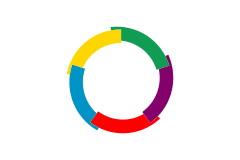Jeux de la Francophonie
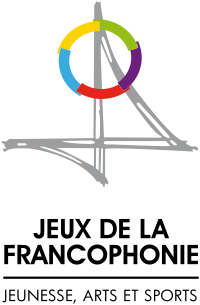
The Jeux de la Francophonie (Canadian English: Francophonie Games; British English: Francophone Games (French-speakers' Games) or The Francophonie) are a combination of artistic and sporting events for the Francophonie, mostly French speaking nations, held every four years since 1989, similar in concept to the Commonwealth Games.
Editions
| Year | Edition | Date | Host city | No. of Athletes (nations) |
|---|---|---|---|---|
| 1989 | I | 8–22 July | 1,700 (39) | |
| 1994 | II | 5–13 July | 2,700 (45) | |
| 1997 | III | 27 August – 6 September | 2,300 (38) | |
| 2001 | IV | 14–24 July | 2,400 (51) | |
| 2005 | V | 7–17 December | 2,500 (44) | |
| 2009 | VI | 27 September – 6 October | 2,500 (40) | |
| 2013 | VII | 6–15 September | 2,700 (54) | |
| 2017 | VIII | 21–30 July | ||
| 2021 | IX |
Events
Sports
There were four sports at the inaugural event in 1989: athletics, basketball, association football and judo. Handisport, handball, table tennis and wrestling were added to the competition programme in 1994. None of these four sports featured at the 1997 Jeux de la Francophonie, and boxing and tennis were introduced to the programme instead. Eight sports featured in 2001: the four inaugural sports, boxing and table tennis were included. Furthermore, handisport and beach volleyball competitions were held as demonstration events. Neither of these demonstration sports were included in 2005, with traditional style wrestling being demonstrated in addition to the six more established sports. The 2009 programme re-introduced beach volleyball.
-
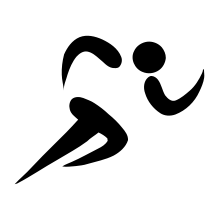 Athletics () : 1989, 1994, 1997, 2001, 2005, 2009, 2013
Athletics () : 1989, 1994, 1997, 2001, 2005, 2009, 2013 -
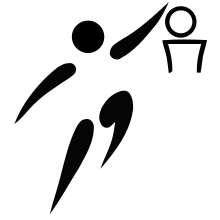 Basketball () : 1989, 1994, 1997, 2001, 2005, 2009, 2013
Basketball () : 1989, 1994, 1997, 2001, 2005, 2009, 2013 -
_pictogram.svg.png) Beach volleyball () : 2001, 2009
Beach volleyball () : 2001, 2009 -
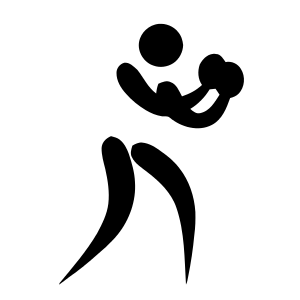 Boxing () : 1997, 2001, 2005, 2009, 2013
Boxing () : 1997, 2001, 2005, 2009, 2013 -
_pictogram.svg.png) Cycling () : 2013
Cycling () : 2013 - Disabled sports () : 2001, 2009
-
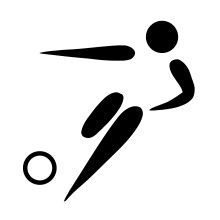 Football () : 1989, 1994, 1997, 2001, 2005, 2009, 2013
Football () : 1989, 1994, 1997, 2001, 2005, 2009, 2013 -
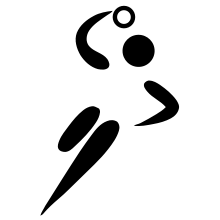 Handball () : 1994
Handball () : 1994 -
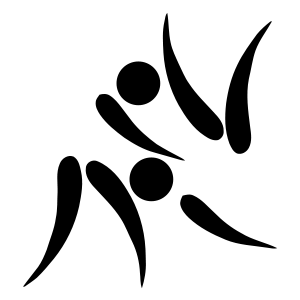 Judo () : 1989, 1994, 1997, 2001, 2005, 2009, 2013
Judo () : 1989, 1994, 1997, 2001, 2005, 2009, 2013 -
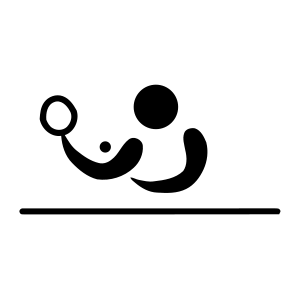 Table tennis () : 1994, 2001, 2005, 2009, 2013
Table tennis () : 1994, 2001, 2005, 2009, 2013 -
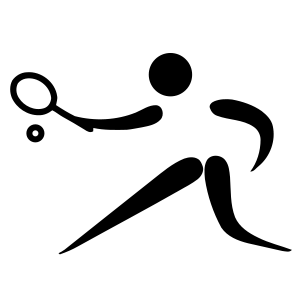 Tennis () : 1997
Tennis () : 1997 -
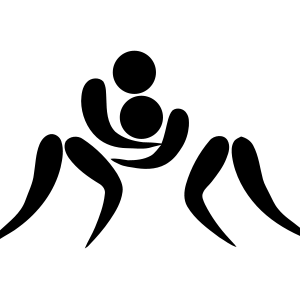 Wrestling () : 1994, 2005, 2013
Wrestling () : 1994, 2005, 2013
Cultural
- Song ()
- Storytelling ()
- Traditional inspiration dance ()
- Poetry ()
- Painting ()
- Photography ()
- Sculpture ()
In 2001, street art featured as a demonstration event.
Participation
Jeux de la Francophonie are open to athletes and artists of the 55 member nations, 3 associate member nations and 12 observer nations of the Francophonie. Canada is represented by three teams: Quebec, New Brunswick (the only officially bilingual Canadian province) and another team representing the rest of the country. The Belgian team is restricted to athletes from the French-speaking areas of the country.
Participation has so far varied between 1,700 and 3,000 athletes and artists.
